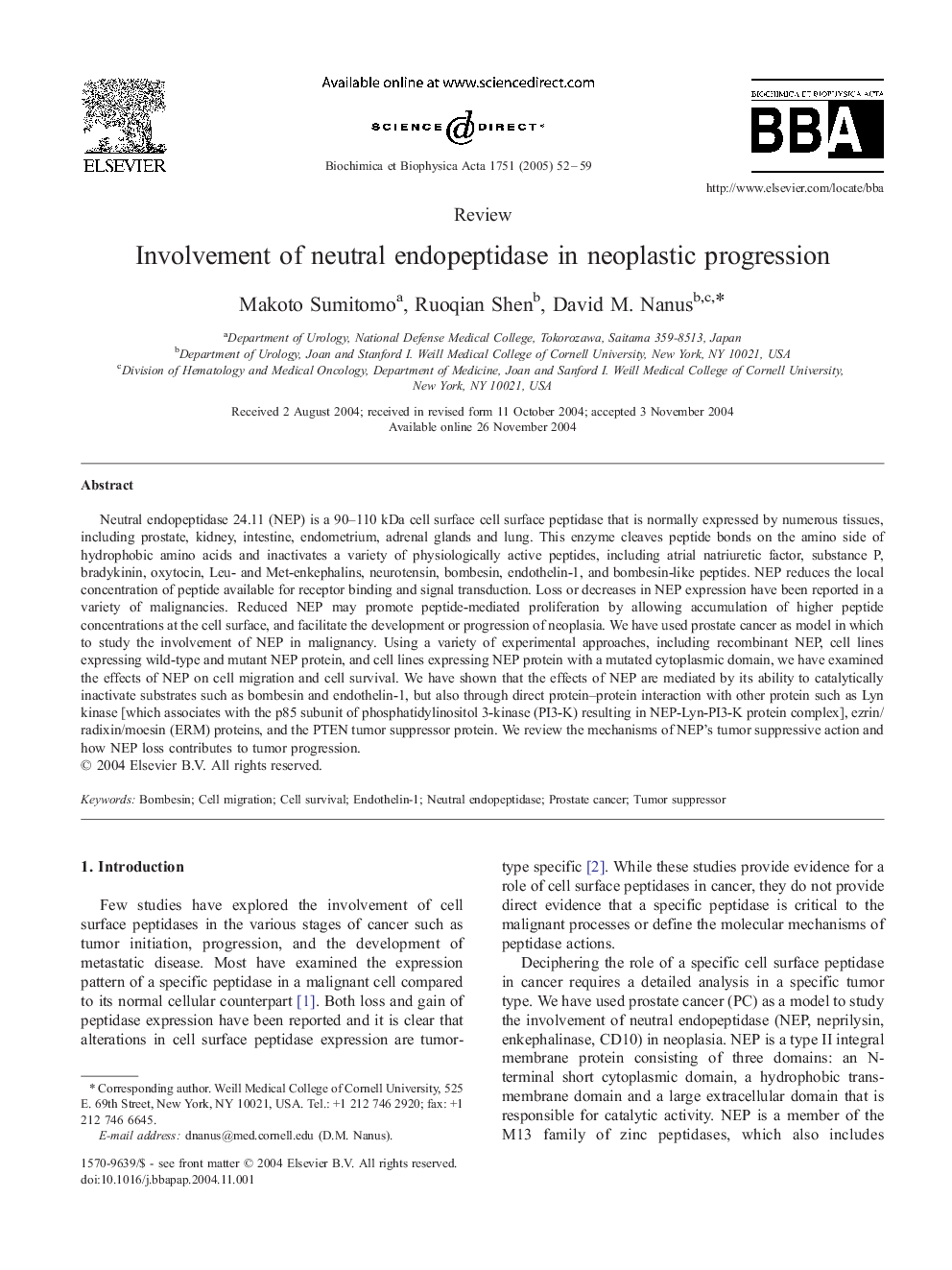| Article ID | Journal | Published Year | Pages | File Type |
|---|---|---|---|---|
| 10537646 | Biochimica et Biophysica Acta (BBA) - Proteins and Proteomics | 2005 | 8 Pages |
Abstract
Neutral endopeptidase 24.11 (NEP) is a 90-110 kDa cell surface cell surface peptidase that is normally expressed by numerous tissues, including prostate, kidney, intestine, endometrium, adrenal glands and lung. This enzyme cleaves peptide bonds on the amino side of hydrophobic amino acids and inactivates a variety of physiologically active peptides, including atrial natriuretic factor, substance P, bradykinin, oxytocin, Leu- and Met-enkephalins, neurotensin, bombesin, endothelin-1, and bombesin-like peptides. NEP reduces the local concentration of peptide available for receptor binding and signal transduction. Loss or decreases in NEP expression have been reported in a variety of malignancies. Reduced NEP may promote peptide-mediated proliferation by allowing accumulation of higher peptide concentrations at the cell surface, and facilitate the development or progression of neoplasia. We have used prostate cancer as model in which to study the involvement of NEP in malignancy. Using a variety of experimental approaches, including recombinant NEP, cell lines expressing wild-type and mutant NEP protein, and cell lines expressing NEP protein with a mutated cytoplasmic domain, we have examined the effects of NEP on cell migration and cell survival. We have shown that the effects of NEP are mediated by its ability to catalytically inactivate substrates such as bombesin and endothelin-1, but also through direct protein-protein interaction with other protein such as Lyn kinase [which associates with the p85 subunit of phosphatidylinositol 3-kinase (PI3-K) resulting in NEP-Lyn-PI3-K protein complex], ezrin/radixin/moesin (ERM) proteins, and the PTEN tumor suppressor protein. We review the mechanisms of NEP's tumor suppressive action and how NEP loss contributes to tumor progression.
Keywords
Related Topics
Physical Sciences and Engineering
Chemistry
Analytical Chemistry
Authors
Makoto Sumitomo, Ruoqian Shen, David M. Nanus,
